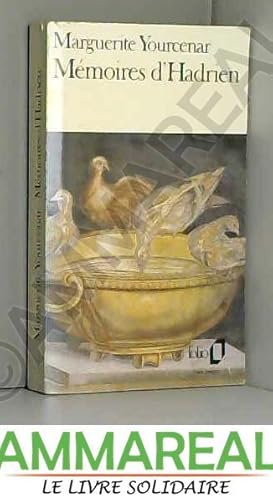

Imagine, further, that he also let you in on his desires, his fears, his aesthetic, his sensuality, his feelings about death-in a manner at once haute and intimate, and in a prose any emperor would be pleased to possess. Imagine Machiavelli's "The Prince" written not by an Italian theorist but by a true prince. One feels that one is reading a remarkable historical document, an account of the intricate meanings of power by a man who has held vast power. Yourcenar has taken what we know of the life of Hadrian and from this sketchy knowledge produced an utterly convincing full-blown portrait. He was, Spartianus writes, "both stern and cheerful, affable and harsh, impetuous and hesitant, mean and generous, hypocritical and straightforward, cruel and merciful, and always in all things changeable"-in short, not a god but a man. As emperor, he attempted to pull back from the imperialist expansion of his predecessor Trajan and wanted, as the chronicler Aelius Spartianus put it, to "administer the republic it would know that the state belonged to the people and was not his property."Īnd yet Hadrian was also a Roman emperor, which meant living amid dangerous intrigue, wielding enormous power and being able to fulfill his erotic impulses at whim. Highly intelligent and cultivated, he was a Grecophile, always a good sign in the ancient world. Roman emperors seem to be divided between monsters and mediocrities, with an occasional near-genius, like Hadrian, thrown in to break the monotony. 117 to 138, to the 17-year-old but already thoughtful Marcus Aurelius. The novel is in the form of a lengthy letter written by the aged and ill Emperor Hadrian, who ruled from A.D. Yourcenar wrote a good deal of fiction, but her imperishable work is "Memoirs of Hadrian," first published in French in 1951. She did not ask in her fiction the contemporary middle-class questions of what is happiness and why have I (or my characters) not found it, concerning herself instead with something larger-the meaning of human destiny as it plays out on a historical stage. She was the last aristocratic novelist of the 20th century, and not only in the sense that her father was of aristocratic descent. Yourcenar (1903-1987) was, in effect, a writer without a country, though she was the first woman elected to the Académie Française (in 1980). Its author was born in Belgium, wrote in French, and lived much of her adult life in Maine with her excellent translator and companion, Grace Frick.

Marguerite Yourcenar wrote 'The Memoirs of Hadrian.'


 0 kommentar(er)
0 kommentar(er)
